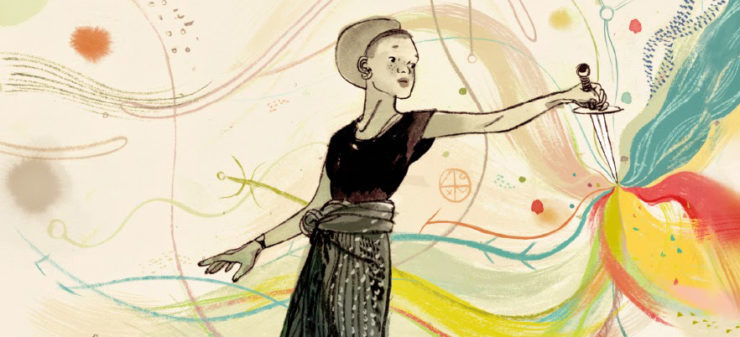It may be the holiday season, but for many people that goes beyond just Christmas or Hannukah. In my case, it means honoring my ancestors and culture through Kwanzaa. I’ve celebrated Kwanzaa alongside Christmas for nearly two decades now. While I no longer go through the whole ritual of lighting the mishumaa saba (seven candles) in the kinara (candleholder) or setting out the mazao (crops) and kikombe cha umoja (unity cup) on the mkeka (mat), I still try to honor the Nguzo Saba (Seven Principles) on which Kwanzaa was founded. One of the ways I do that is by spending the week of Kwanzaa focusing on work created by African Americans, from television to movies to comics to books to businesses and beyond.
Traditionally, zawadi (Kwanzaa gifts) are given only to kids and always include a book and a heritage symbol. Now, most of you aren’t children, but this year I decided to give you lovely Tor.com readers zawadi anyway. Here is a little list of science fiction and fantasy books whose themes play on one of the seven principles. Each was written by Black author, features a Black main character (and often a predominately Black cast), and spans the African diaspora. The definitions of each principle are quoted directly from the Official Kwanzaa Website.
And if you have a book or comic to add, please do so in the comments! After all, Kwanzaa is all about community.
Umoja
Unity: To strive for and to maintain unity in the family, community, nation, and race.
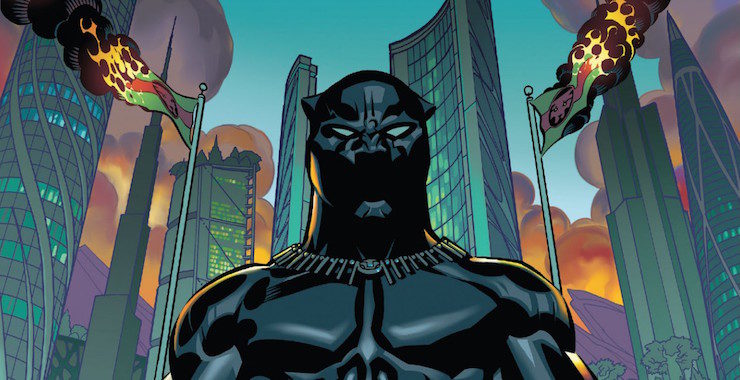
The Fifth Season by NK Jemisin: Essun’s husband murders their son and kidnaps their daughter. Definitely less on the unity in the community and nation bit, but as far as family goes, Essun will stop at nothing to get her daughter back.
Black Panther (comic) by Ta-Nehisi Coates and Brian Stelfreeze: T’Challa fights to keep his nation whole, defend his people, secure his homeland, and protect the monarchy. It’s basically Umoja in comic book form.
Beloved by Toni Morrison: This classic magical realism novel is a stretch for Umoja, but it’s here because it’s ultimately about the relationship between Sethe and her daughters (alive and dead) and the generational trauma that slavery inflicts on family stability.
Kujichagulia
Self-Determination: To define and name ourselves, as well as to create and speak for ourselves.
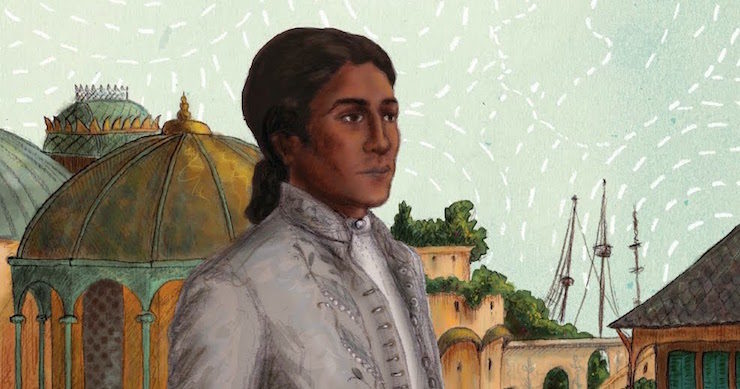
Kindred by Octavia Butler: Dana is sent back to antebellum Maryland to ensure her lineage continues, even when it means protecting the slaveholder who will become her great-great-grandfather.
A Stranger in Olondria by Sofia Samatar: During a visit to the fabled land of Olandria, Jevik finds himself haunted by a ghost while not getting caught up in wartime politics. As he tries to help the spirit, he learns what kind of man he is and who he wants to become.
Will Do Magic for Small Change by Andrea Hairston: Cinnamon inherits “The Chronicles of the Great Wanderer,” a diary written by an alien and 19th-century Dahomean warrior woman. Cinnamon discovers herself through her past and sets a course for her future.
Ujima
Collective Work and Responsibility: To build and maintain our community together and make our community’s problems our problems and to solve them together.
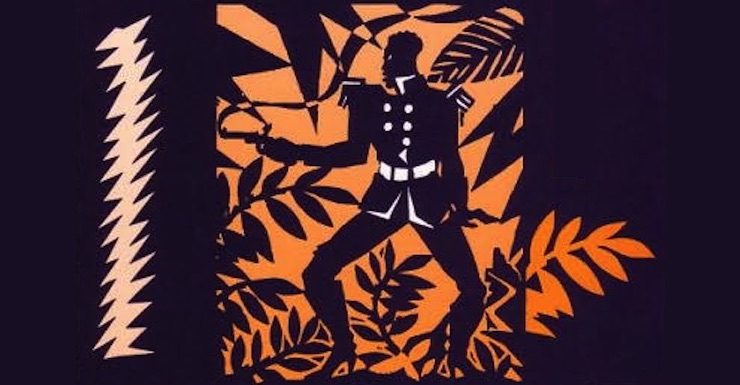
Blake; or the Huts of America by Martin R. Delany: The oldest work on this list (published as a serial in 1859!) could be considered an early form of alt-history. Henry Blake, a runaway slave, makes his way through the South to Cuba to start a slave insurrection. Along the way he talks to slaves, including both historical figures like Nat Turner and Denmark Vesey and Black men who fought in the American Revolution. The final chapters are lost to the sands of time, so we may never know if Blake’s revolution was successful, but here’s hoping.
Invisible Man by Ralph Ellison: The unnamed Black protagonist experiences the highs and lows of the successes and failures of collective work and social responsibility.
The Belles by Dhonielle Clayton: When the Queen of Orléans puts beautiful Camellia between a rock and a hard place—protect her family and the other Belles or save the princess—Camellia is Ujima in action. She has to keep her community whole while also solving all of its problems.
Ujamaa
Cooperative Economics: To build and maintain our own stores, shops, and other businesses and to profit from them together.
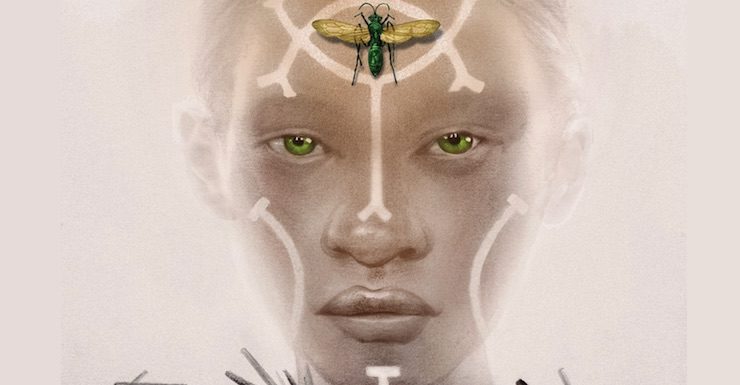
Akata Witch by Nnedi Okorafor: When Sunny learns she has magical powers, she’s brought into the world of the Leopard People, a sprawling and thriving community of magicians in West Africa. She spends much of her time in Leopard Knocks, which boasts a large market, library, and everything else a young African Free Agent could want.
My Life in the Bush of Ghosts by Amos Tutuola: This collection of connected stories inspired by Yoruba folktales tells of a West African boy who, while escaping slave traders, wanders into the woods. There he enters the spirit world and has harrowing encounters with many of its subjects.
Dark Matter: A Century of Speculative Fiction from the African Diaspora edited by Sheree R. Thomas: What’s more Ujamaa than an anthology celebrating Black excellence?
Nia
Purpose: To make our collective vocation the building and developing of our community in order to restore our people to their traditional greatness.
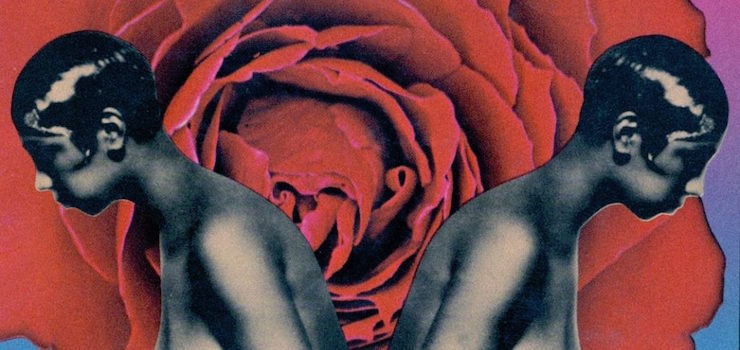
Mumbo Jumbo by Ishmael Reed: The Wallflower Order sets out to destroy the Jes Grew virus, and all that stands in their way are a houngan from Harlem and his friend. Jes Grew is spread by Black creatives and promotes Black artistic expression (such as voodoo, jazz, and ancient African history); through it, Reed challenges Western (white) cultural dominance.
Children of Blood and Bone by Tomi Adeyemi: After all the magic in Orïsha vanishes and most magicians are slaughtered, if Zélie and Amari are going to restore magic and set things right, they’ll have to take on a wicked king.
Imaro by Charles R. Saunders: In these Sword and Soul short stories, Saunders explores an alternate history version of Africa through the eyes of Imaro himself. While the collection isn’t exactly Nia, the actions of the author certainly are. Saunders set his rip-roaring high fantasy in a romanticized version of pre-colonial Africa—can’t get much closer to traditional greatness than that.
Kuumba
Creativity: To do always as much as we can, in the way we can, in order to leave our community more beautiful and beneficial than we inherited it.
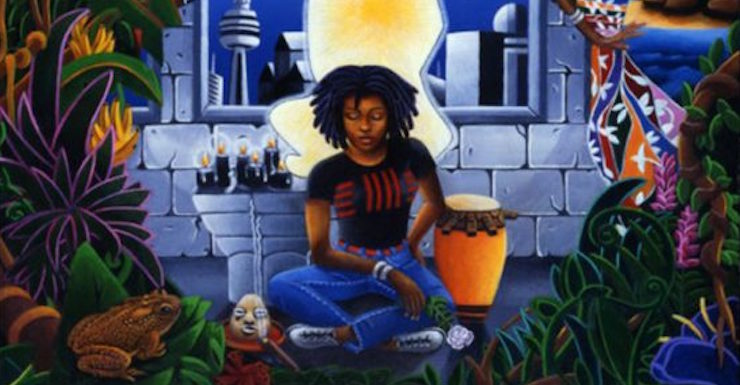
Redemption in Indigo by Karen Lord: In this retelling of a Senegalese tale, Paama’s life isn’t all that great, mostly because of her loser husband Ansige. She ditches her gluttonous hubby and returns to her parents’ home where a djombi gifts her a stolen Chaos Stick to change her life and the world.
Brown Girl in the Ring by Nalo Hopkinson: Ti-Jeanne lives in a dystopian future Toronto where the inner city, the Burn, is a wasteland of slums. She deals with organ harvesting, exploitation, and the corruption that comes with late stage capitalism in a colonialist society, and with the assistance of the spirits of her Afro-Caribbean ancestors she tries to leave her unnamed baby boy a better world.
She Who Fights Monsters by Kyoko M: In the second book in the Black Parade series, Jordan and her husband, the archangel Michael, must, well, get creative as they do everything in their power to stop a supernatural serial killer.
Imani
Faith: To believe with all our hearts in our people, our parents, our teachers, our leaders, and the righteousness and victory of our struggle.
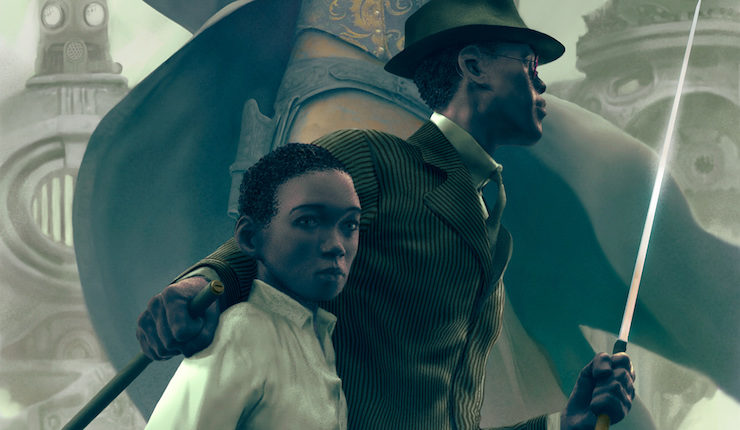
Shadow Chase by Seressia Glass: If you’re looking at faith in a literal, believing-in-gods sense, the second book in the Shadowchasers series is a good fit. Kira was a Shadowchaser for the Gilead Commission but now is the Hand of Ma’at, the ancient Egyptian goddess of truth, order, morality, and law.
Underground Railroad by Colson Whitehead: Perhaps “righteousness” is too strong a word for Cora’s experiences, but she never backs down and won’t stop running until she’s free. She believes in freedom, believes she deserves it, and knows she’ll have to fight for it.
Buffalo Soldier by Maurice Broaddus: Jamaicans Desmond and Lij are on the run in Tejas and the Assembly of the First Nations in this alt-history novella. Despite everything Desmond confronts—a Herculean task that seems to get more impossible as time goes on, the risk of life and limb, and the loss of his homeland—he’ll stop at nothing to deliver Lij to safety. He believes in his fight, and, perhaps more importantly, believes that his young charge deserves a chance at a normal life.
Alex Brown is a teen librarian, writer, geeknerdloserweirdo, and all-around pop culture obsessive who watches entirely too much TV. Keep up with her every move on Twitter and Instagram, or get lost in the rabbit warren of ships and fandoms on her Tumblr.










